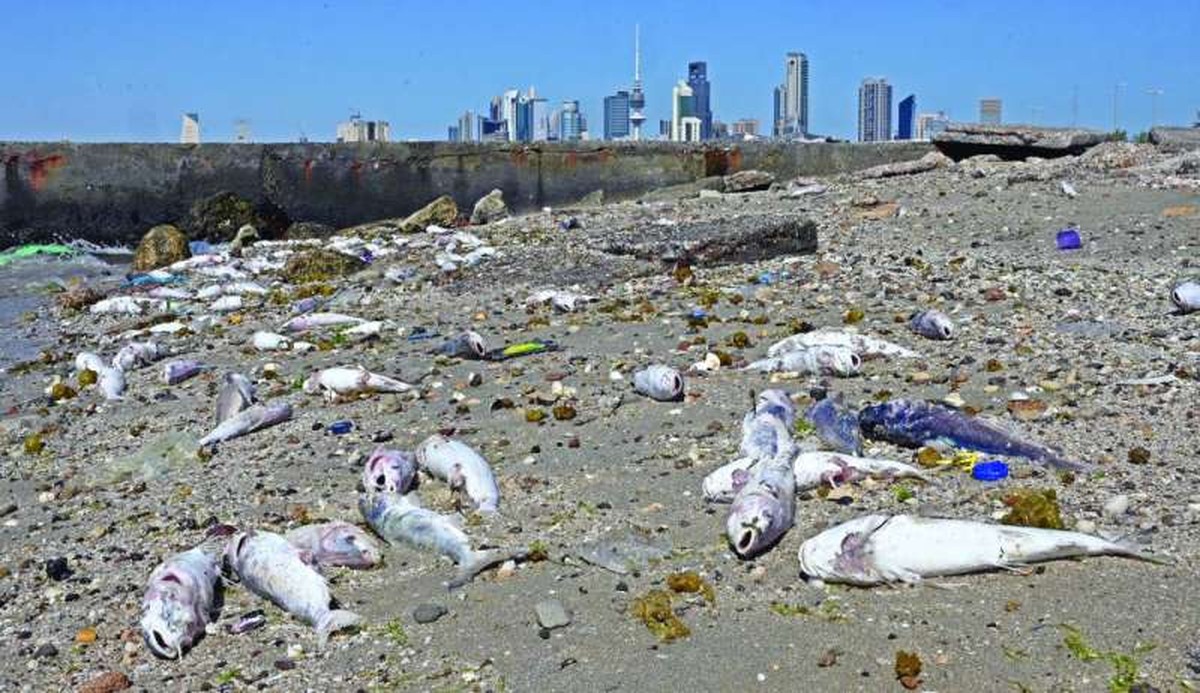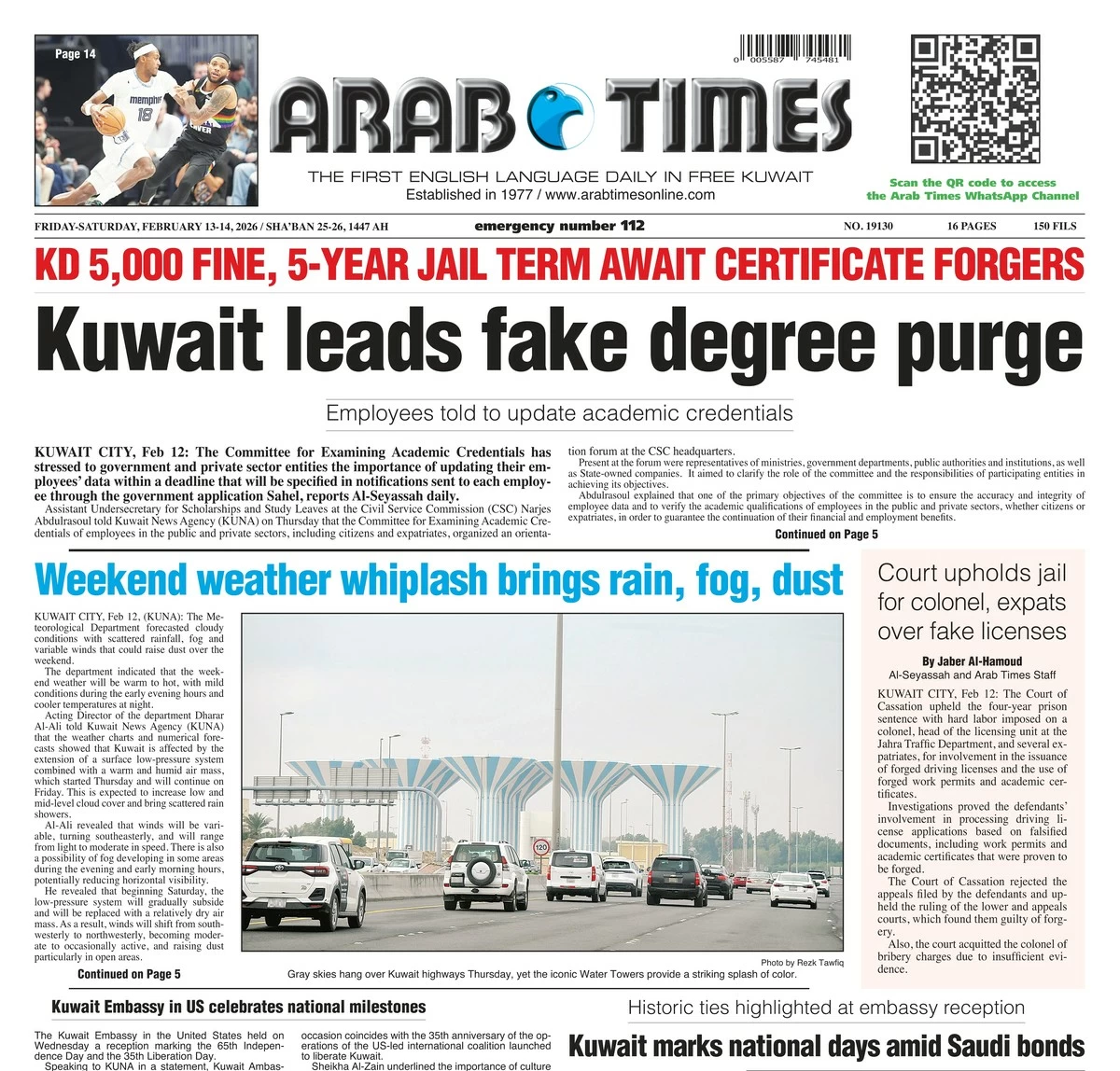24/07/2025
24/07/2025

KUWAIT CITY, July 24: The Kuwait Institute for Scientific Research (KISR) has announced a groundbreaking achievement in marine science, successfully identifying the genetic profiles of three toxic microalgae species responsible for red tide events and mass fish deaths in Kuwaiti waters.
Published in the scientific journal Botanica Marina, the study is the first of its kind in Kuwait and puts an end to years of scientific uncertainty surrounding the cause of harmful algal blooms in the region. The research identified Karenia papilionacea, Karenia selliformis, and Karlodinium ballantinum using advanced high-resolution microscopy and genetic analysis of large subunit ribosomal DNA (LSU rDNA) from live strains collected between 2014 and 2021.
Dr. Manal Al-Kandari, lead researcher at KISR’s Environmental and Life Sciences Research Center, told the Kuwait News Agency (KUNA) that the study confirmed the presence of K. papilionacea, with seven strains showing a 99 percent genetic similarity. It also reaffirmed K. selliformis as the species linked to the 1999 fish kill, one of the most significant environmental incidents in Kuwait’s marine history.
Notably, the study also recorded the presence of Karlodinium ballantinum for the first time in both Kuwaiti waters and the wider Arabian Gulf—marking a major scientific milestone for the country.
In collaboration with the University of Copenhagen in Denmark, the KISR team successfully isolated and analyzed ten strains of these harmful algae. The resulting data has established a foundational scientific database to enhance Kuwait’s capacity to monitor and manage toxic algal blooms.
“These findings will support the development of early warning systems, help protect marine ecosystems and fisheries, and bolster national food security,” Dr. Al-Kandari said. She also highlighted the creation of a reference collection of live strains now preserved at KISR as a valuable national and regional resource for future research.
Dr. Al-Kandari praised the continued backing of the Kuwait Foundation for the Advancement of Sciences for its support of marine research initiatives. She emphasized the need to sustain such scientific efforts to safeguard the health and sustainability of Kuwait’s marine environment.


